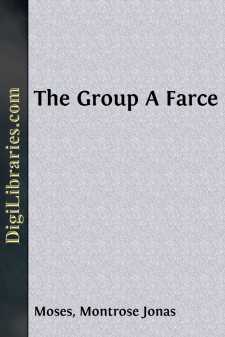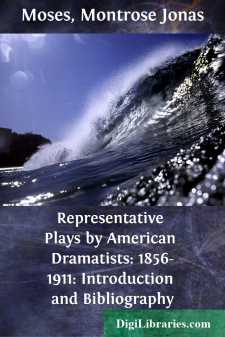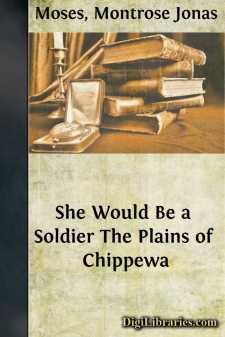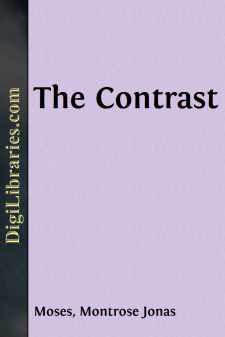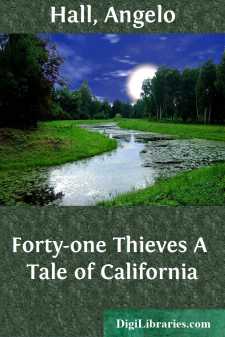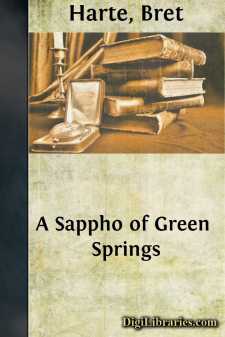Categories
- Antiques & Collectibles 13
- Architecture 36
- Art 48
- Bibles 22
- Biography & Autobiography 813
- Body, Mind & Spirit 142
- Business & Economics 28
- Children's Books 17
- Children's Fiction 14
- Computers 4
- Cooking 94
- Crafts & Hobbies 4
- Drama 346
- Education 46
- Family & Relationships 57
- Fiction 11829
- Games 19
- Gardening 17
- Health & Fitness 34
- History 1377
- House & Home 1
- Humor 147
- Juvenile Fiction 1873
- Juvenile Nonfiction 202
- Language Arts & Disciplines 88
- Law 16
- Literary Collections 686
- Literary Criticism 179
- Mathematics 13
- Medical 41
- Music 40
- Nature 179
- Non-Classifiable 1768
- Performing Arts 7
- Periodicals 1453
- Philosophy 64
- Photography 2
- Poetry 896
- Political Science 203
- Psychology 42
- Reference 154
- Religion 513
- Science 126
- Self-Help 84
- Social Science 81
- Sports & Recreation 34
- Study Aids 3
- Technology & Engineering 59
- Transportation 23
- Travel 463
- True Crime 29
The Group A Farce
Description:
Excerpt
MRS. MERCY WARREN
(1728-1814)
Most of the literature—orations as well as broadsides—created in America under the heat of the Revolution, was of a strictly satirical character. Most of the Revolutionary ballads sung at the time were bitter with hatred against the Loyalist. When the conflict actually was in progress, the theatres that regaled the Colonists were closed, and an order from the Continental Congress declared that theatre-going was an amusement from which all patriotic people should abstain. These orders or resolutions were dated October 12, 1778, and October 16. (Seilhamer, ii, 51.) The playhouses were no sooner closed, however—much to the regret of Washington—than their doors were thrown wide open by the British troops stationed in Boston, New York, and Philadelphia. A complete history of the American stage has to deal with Howe's players, Clinton's players, and Burgoyne's players.
Of all these Red-Coat Thespians, two demand our attention—one, Major André, a gay, talented actor; the other, General Burgoyne, whose pride was as much concerned with playwriting as with generalship. The latter dipped his pen in the satirical inkpot, and wrote a farce, "The Blockade of Boston." It was this play that drew forth from a woman, an American playwright, the retort stinging. This lady was Mrs. Mercy Warren who, although distinguished for being a sister of James Otis, and the wife of General James Warren, was in her own name a most important and distinct literary figure during the Revolution.
So few women appear in the early history of American Drama that it is well here to mention Mrs. Charlotte Ramsay Lennox (1720-1804) and Mrs. Susanna Rowson (1762-1824). The former has the reputation of being the first woman, born in America, to have written a play, "The Sister" (1769). The author moved to London when she was fifteen, and there it was her piece was produced, with an epilogue by Oliver Goldsmith. She is referred to in Boswell's Life of Johnson.
Of Susanna Rowson, whose Memoir has been issued by Rev. Elias Nason, we know that, as a singer and actress, she created sufficient reputation in London to attract the attention of Wignell, the comedian. (Clapp. Boston Stage. 1853, p. 41.)
With her husband, she came to this country in 1793, and, apart from her professional duties on the stage, wrote a farce, "Volunteers" (1795), dealing with the Whiskey Insurrection in Pennsylvania, "The Female Patriot" (1794), "Slaves in Algiers; or, A Struggle for Freedom" (1794), and "Americans in England" (1796). All of these were produced. Her literary attainments were wide, her most popular novel being "Charlotte Temple, a Tale of Truth" (1790). She likewise compiled many educational works. (See Wegelin.)
The picture conjured up in our mind of Mrs. Warren is farthest away from satire. To judge by the costume she wore when she sat to Copley for her portrait, she must have been graced with all the feminine wiles of the period. Behold Mrs. Mercy Warren, satirist, as the records describe her:
Her head-dress is of white lace, trimmed with white satin ribbons. Her robe is of dark-green satin, with a pompadour waist, trimmed with point lace. There is a full plait at the back, hanging from the shoulders, and her sleeves are also of point lace. White illusion, trimmed with point lace, and fastened with a white satin bow, covers her neck. The front of the skirt and of the sleeves are elaborately trimmed with puffings of satin.
But however agreeable this picture may be, Mrs. Warren, on reading Burgoyne's farce, immediately sharpened her pen, and replied by writing a counter-farce, which she called "The Blockheads; or, the Affrighted Officers." It was in the prologue to this play that the poet-dramatist wrote:
Your pardon first I crave for this intrusion.The topic's such it looks like a delusion;
And next your candour, for I swear and vow,
Such an attempt I never made till now.
But constant laughing at the Desp'rate fate,
The bastard sons of Mars endur'd of late,
Induc'd me thus to minute down the notion,
Which put my risibles in such commotion.
By yankees frighted too! oh, dire to say!
Why yankees sure at red-coats faint away!
Oh, yes—They thought so too—for lack-a-day,
Their gen'ral turned theblockadeto a play:
Poor vain poltroons—with justice we'll retort,
And call themblockheadsfor their idle sport....


